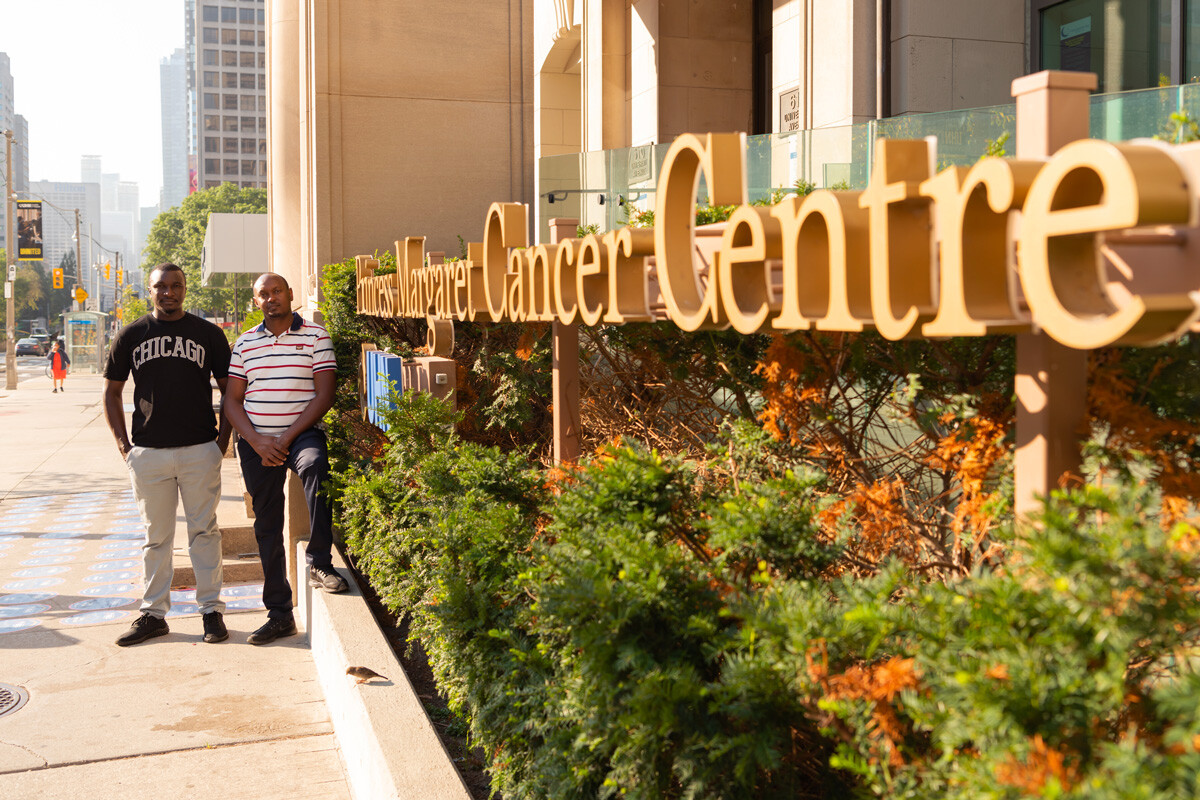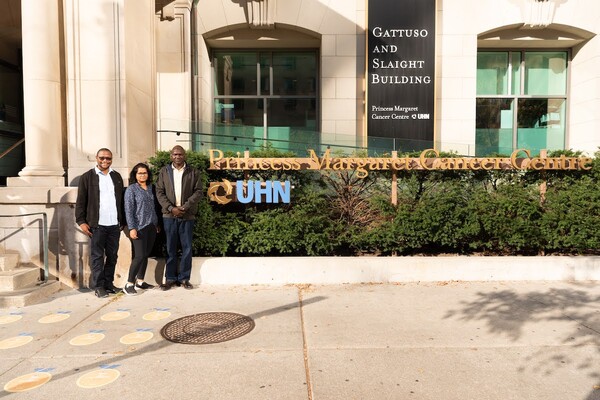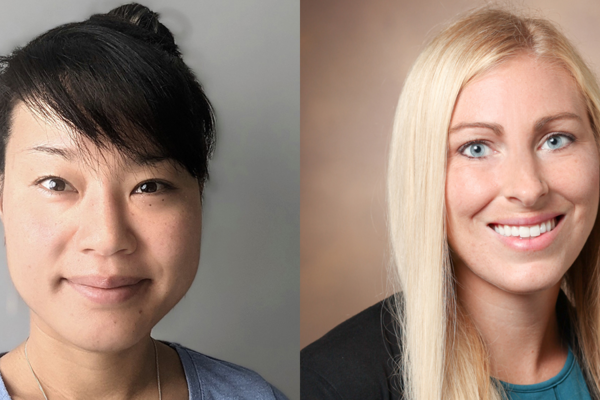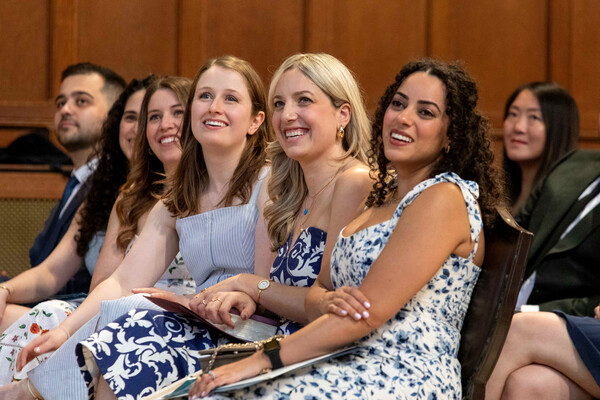Nov 12, 2024
Kenyan gyn-onc fellows talk about ‘eye-opening’ and ‘game-changing’ observership
AMPATH, Fellows, Trainees
The AMPATH Consortium program connects fellows from Moi Teaching and Referral Hospital for six weeks of learning at hospital sites in Toronto

(photo by Joseph George)
Gabriel Eliazaro (left) and Geoffrey Wahome



